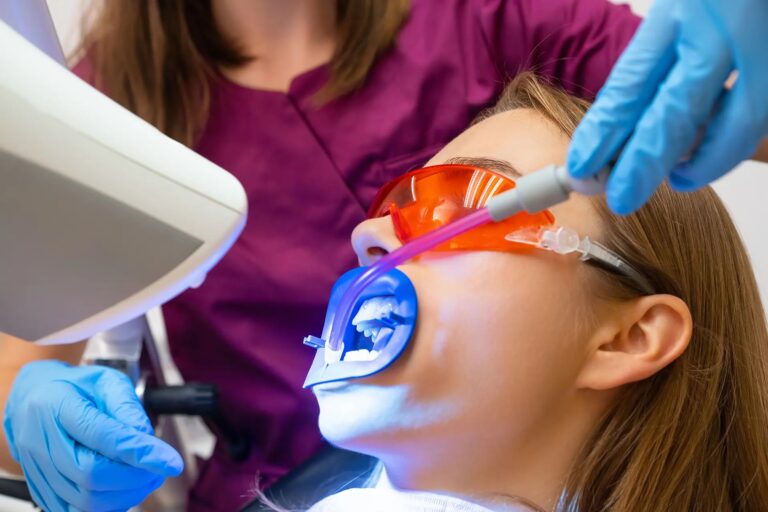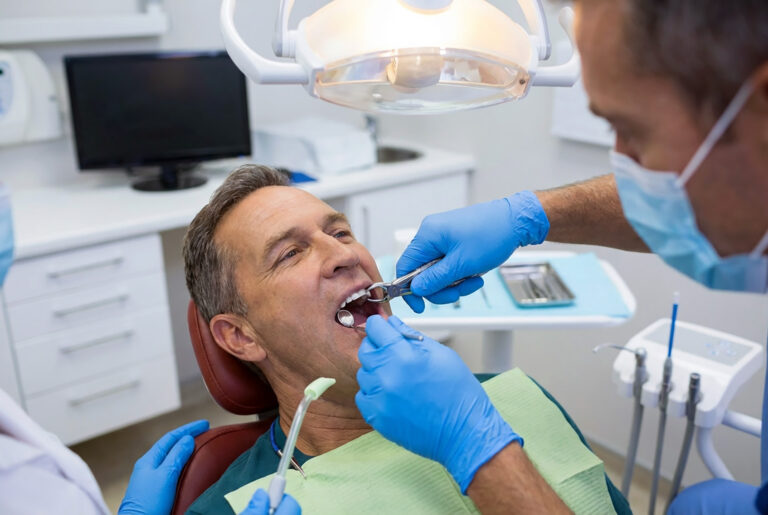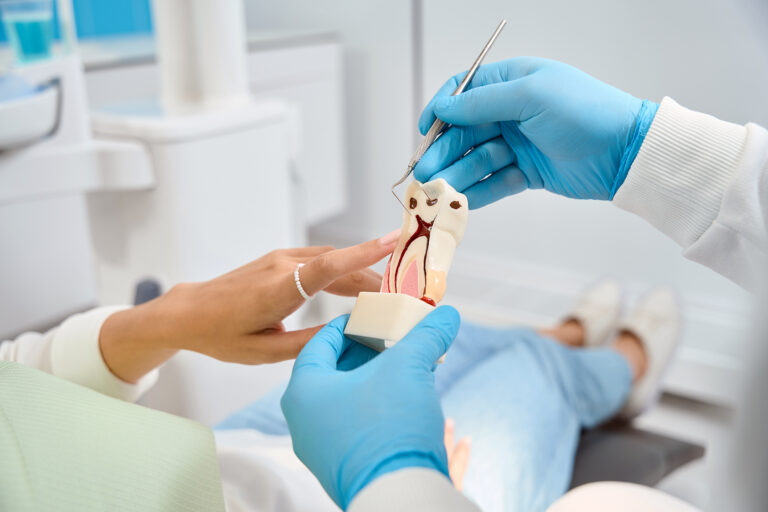Gingival recession, or gum recession, is more than a cosmetic issue. It’s a common dental problem that, if left untreated, can cause tooth sensitivity, root exposure and in severe cases, tooth loss. Characterised by the gradual pulling back of the gum tissue from the teeth, it exposes more of the tooth or its root, creating pockets where bacteria can thrive.
In Singapore, gingival recession is increasingly common due to an ageing population, stress, aggressive brushing habits, and other lifestyle factors. Fortunately, gingival recession treatment has come a long way, with traditional and new gingival recession treatment options to suit individual needs.
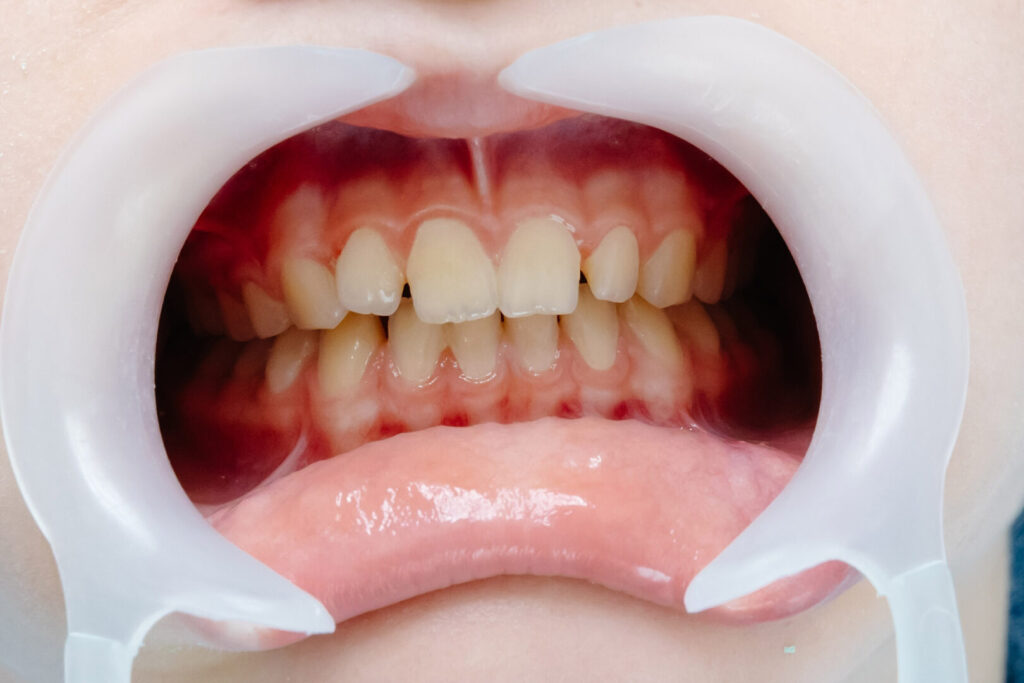
About Gum Health
Maintaining healthy gums is crucial to preventing dental problems and can significantly affect overall health. Gum tissue is vital in supporting teeth and protecting them from decay and damage. When gums recede, tooth roots become exposed, and the risk of tooth decay increases.
Gingival recession happens gradually, so it’s easy to overlook in its early stages. While the most common cause is periodontal disease, there are multiple factors. These include genetics, overbrushing with a hard-bristled toothbrush, teeth grinding (bruxism), tobacco use, and poor dental hygiene. Orthodontic movement and misaligned teeth can also stress the gums and bone and exacerbate the problem.
Whatever the cause, the earlier the gingival recession is detected, the better the prognosis. Regular dental check-ups are crucial for early detection and timely intervention. Poor oral hygiene can contribute to Gingival recession, so oral care habits are essential.
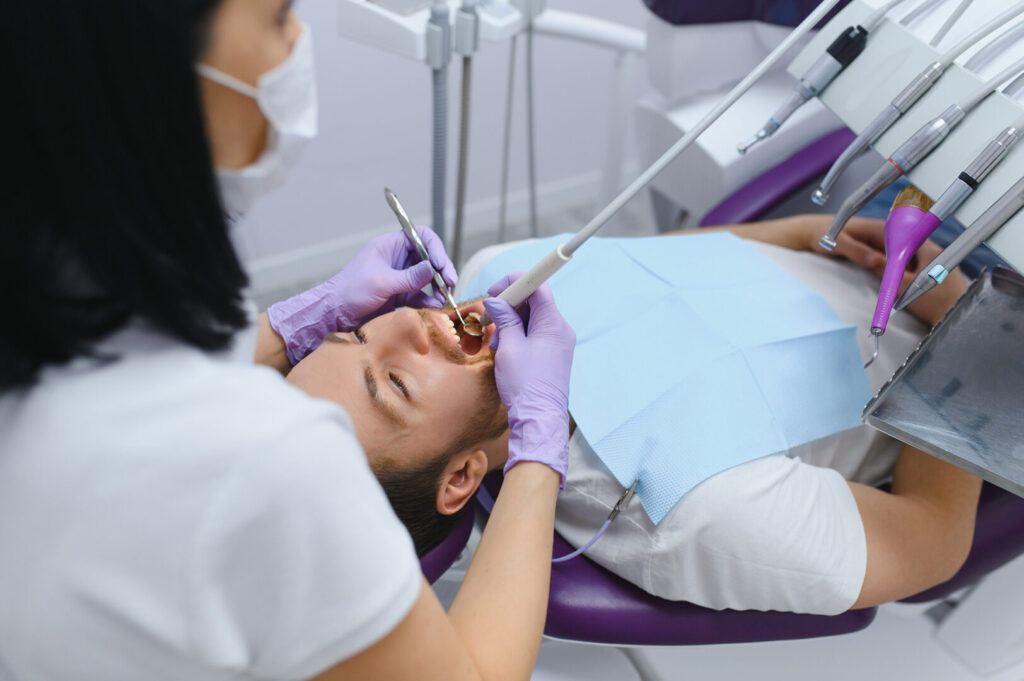
About Gum Disease
Gum disease, also known as periodontal disease, is a common condition that affects the gums and surrounding structures of the teeth. It is caused by the buildup of plaque and tartar on teeth, which can lead to inflammation and infection of the gums. If left untreated, gum disease can cause significant gingival recession, tooth loss, and other oral health problems. Bleeding gums, bad breath, and tooth sensitivity are all signs and symptoms of gum disease, and they need to be treated promptly to prevent further gingival recession.

Signs of Tooth Sensitivity
Signs of gingival recession vary but often include increased tooth sensitivity, especially to cold or sweet foods, visibly longer teeth, and notches or grooves near the gum line. Gums may also appear red, swollen, or bleed easily. Patients may experience a persistent bad taste in the mouth or bad breath. In more advanced cases, teeth may become loose as the gums lose traction. Your teeth may also become more sensitive to cold temperatures.
While gingival recession is common, it should never be dismissed as a sign of ageing. Timely treatment can stop its progression and restore gum health.

Gingival Recession Treatment in Singapore
The approach to gingival recession treatment depends on the severity of the condition and the underlying cause. Singapore patients have a wide range of options from conservative management to advanced surgical procedures. Consulting dental professionals is crucial as they provide comprehensive evaluations and tailored approaches. They will offer various gum treatment methods to manage and maintain optimal gum health for long-term oral health.

Is There A Non-Surgical Treatment for Gingival Recession?
There are indeed very effective non-surgical treatment options for gingival recession in mild or moderate cases. These approaches aim to stabilise the condition and prevent further recession without the need for incisions or grafts.
One standard method is scaling and root planing. This deep cleaning removes plaque and tartar below the gum line, allowing the gums to heal and reattach to the teeth. Antibacterial rinses or gels may also be prescribed to control infection and inflammation. Proper oral hygiene practices, such as brushing and flossing, are crucial for optimal healing and to prevent complications after these procedures.
In some cases, occlusal adjustments or the use of night guards can help reduce mechanical stress from grinding or clenching, which may be contributing to the recession. Therapeutic mouthwash can also be used as a supportive measure in managing gum health to reduce harmful bacteria and control plaque.
Orthodontic treatment may also be considered when misaligned teeth are identified as the root cause. By correcting bite issues, orthodontic treatment can alleviate pressure on gum tissues and slow down or stop further recession.
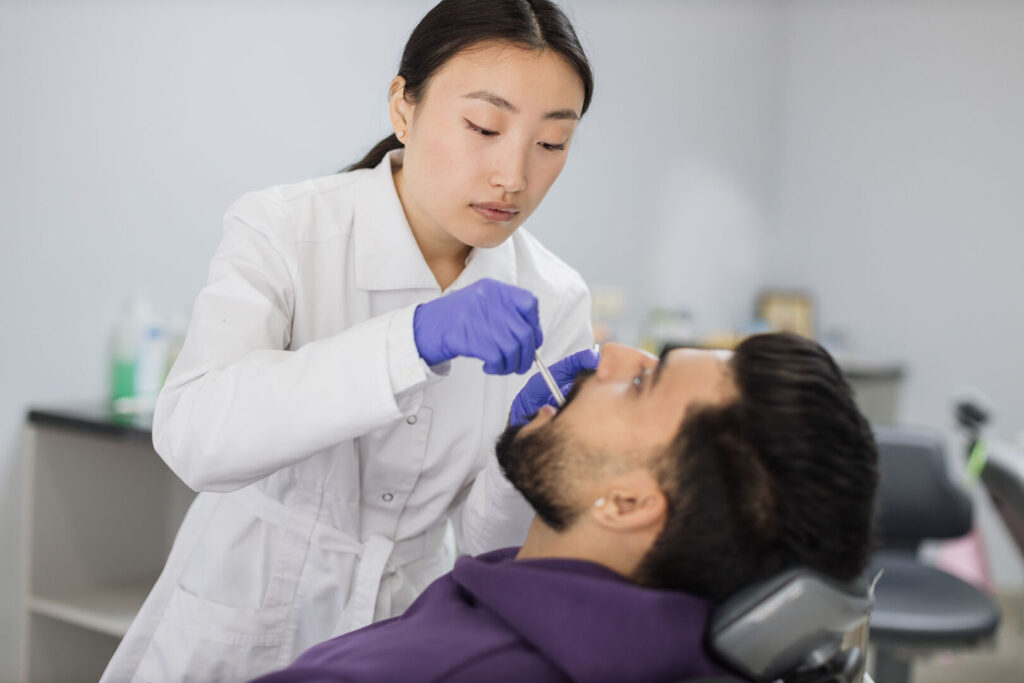
Surgical Options for Gingival Recession Treatment
In more advanced cases, surgery may be necessary to restore lost gum tissue and protect the tooth roots. One traditional option is gum grafting, where tissue is taken from the patient’s palate or a donor source and grafted onto the receded area. This improves the appearance of the gums and covers exposed roots, reducing sensitivity and the risk of decay. Gum contouring is another surgical option for repairing infected areas using gum tissue from other mouth regions, usually performed under local anaesthesia or intravenous sedation.
New gingival recession treatment options, such as the Pinhole Surgical Technique (PST), are also gaining popularity in Singapore. Unlike traditional grafting, PST is a minimally invasive procedure that involves making a small hole in the gum tissue and gently repositioning it over the exposed root surface. Recovery time is usually quicker. Additionally, no sutures or a secondary surgical site are required. Laser therapy is also a professional treatment option for managing severe Gingival recession and advanced periodontal disease to cover exposed tooth roots and improve gum appearance.
Another innovation for gingival recession treatment is using regenerative materials or biologics that stimulate the body’s natural healing response. These can be applied during surgery to enhance gum and bone regrowth.

Maintenance for Long-Term Success
Regardless of the type of gingival recession treatment chosen, long-term success depends heavily on maintenance. This includes maintaining good oral hygiene, undergoing regular dental cleanings, and addressing lifestyle habits that may contribute to gum disease, such as smoking or managing high stress levels.
Dentists often recommend switching to a soft-bristled toothbrush and a gentle brushing technique. Patients are also advised to be vigilant for signs of recurrent gum issues and to seek dental advice promptly. Taking proactive measures to prevent gingival recession from worsening, including regular dental appointments and lifestyle changes to maintain gum health, is crucial.

Gingival Recession Treatment Cost in Singapore
Gingival recession treatment costs in Singapore vary widely depending on the complexity of the case and the procedure performed. Non-surgical treatments such as scaling and root planing are more affordable, ranging from S$150 to S$350 per session.
Surgical options, including gum grafting and gum surgery, can range from S$800 to S$2,500 per site, depending on the materials used and whether sedation is required. New Gingival recession treatments, such as the Pinhole Surgical Technique, may command higher fees due to their specialised nature and the expertise required.
While the cost of gingival recession treatment is important, weigh it against the long-term benefits of preserving your oral health and preventing more extensive and expensive restorative procedures in the future. Some treatments may be partially claimable under MediSave if classified as surgical procedures, but this varies by case and clinic.
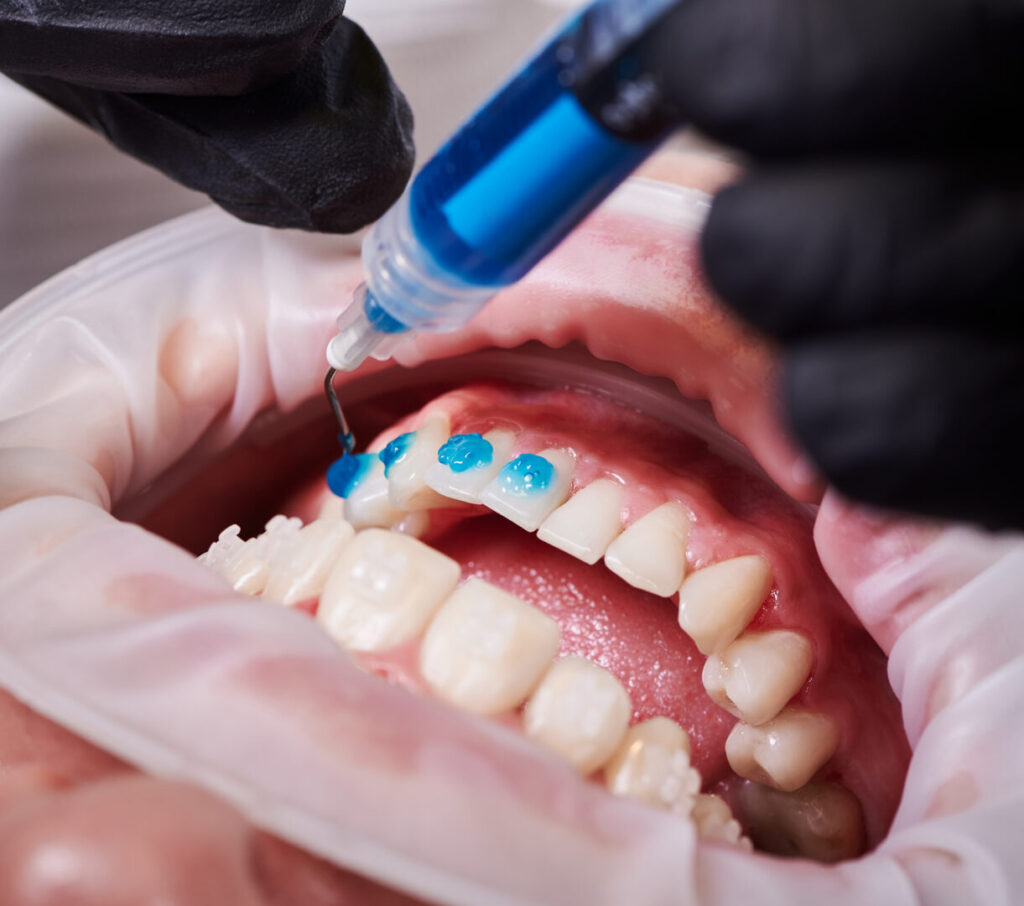
Why Treatment Matters
Delaying gingival recession treatment can lead to more severe periodontal problems and irreversible damage. Once gum tissue has receded significantly, it cannot regenerate independently. When gums recede, they expose the roots of the teeth, which are not covered in enamel and are therefore more prone to decay, wear and sensitivity.
Moreover, exposed roots accumulate niches for plaque and bacteria, increasing the risk of gum infections and bone loss. Receding gums affect overall oral health by compromising the stability of the affected teeth and potentially leading to tooth loss. Treating gingival recession at the first sign of trouble is a proactive step towards long-term dental wellness.

Choosing the Right Clinic in Singapore
When considering gingival recession treatment in Singapore, choose a clinic that offers comprehensive services, advanced technology, and personalised care. At TEETH @ Tiong Bahru, our experienced dental team is committed to diagnosing and managing gingival recession using conventional and cutting-edge techniques.
We take the time to understand the root cause of your gingival recession and recommend a treatment plan that aligns with your oral health goals and lifestyle. Our experienced dental professionals conduct thorough examinations and personalised consultations to create effective treatment plans tailored to your needs. Whether you require non-surgical care, advanced surgical intervention or ongoing maintenance, our team will guide you through every step of the process.
Contact TEETH @ Tiong Bahru to schedule a consultation and explore your gingival recession treatment options in Singapore. With the proper care and timely intervention, restoring your gum health is possible and within reach.


